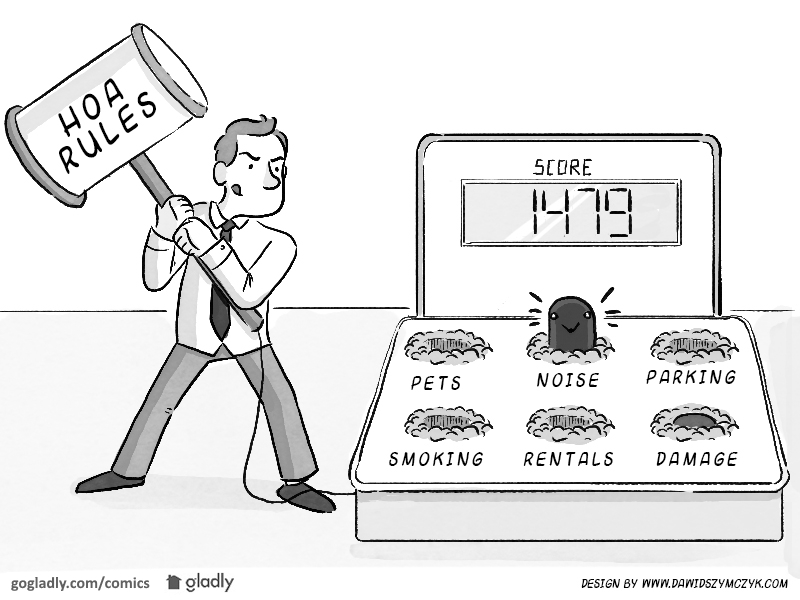You’ve read the news stories about the homeowner who was treated unfairly by their HOA. In fact, if you’ve worked in the industry you may have witnessed it first hand. Whether these stories are valid or just fodder for a good news story, is a discussion for another blog post — But as a CAM manager, I found myself talking the HOA board out of creating unreasonable or unlawful HOA rules on more than one occasion.
Most unreasonable HOA rules start with good intentions. Boards often find themselves creating or amending a policy after an encounter with a particularly difficult or disruptive resident. Consequently, these policies sometimes take a very hard line without consideration for the more ordinary or accidental violation of the rule.
The fact is, creating and implementing policy is one of the most difficult and important responsibilities of a Board. With careful consideration, your policies — and the implementation of them — can be both effective and reasonable. Here are some ideas to help you create good policies.
Check the Law
To often boards adopt policies that violate their governing documents or state and federal law. Get legal advice early and often to make sure your not wasting time on something that is already decided by a higher law.
What is the Net Affect
A rule that causes a major inconvenience to the average resident just to stop the “inconsiderate 2%” may cause more problems than it solves.
Policies should address actions and outcomes rather than individual groups. I recall meeting with a board who felt that renters were the source of most of their problems. They proposed separate and more strict set of rules for renters. Not only would this policy have been an administrative nightmare but it probably would have been against the law. After reviewing the CC&Rs we discovered that all of the issues could be solved with consistent enforcement of existing policy
Educate Homeowners on HOA Rules
Let residents know about the rules through your website, newsletters and with the use of warning letters. A clear fine schedule including a warning letter will help residents understand the consequences if they decide not to follow the rules.
Remediation
Often, a resident is happy to fix the problem but if they are slapped with hefty fines and no warning or chance for remediation they can become bitter and uncooperative.
Consistency and Communication
Most complaints about rules stem from poor communication and inconsistent enforcement. Make sure you are sending violations letters that clearly spell out what is expected from the resident. If your policy says they have 10 days to fix the problem you better be following up in about 10 days.
- Liar, Liar, Pants on Fire! Handling Misinformation in Your HOA - March 13, 2019
- Setting the Ground Rules for Neighbor Disputes - June 27, 2018
- HOA Board Responsibilities – It’s Not as Difficult as You’re Making It. - April 23, 2018



 Help
Help